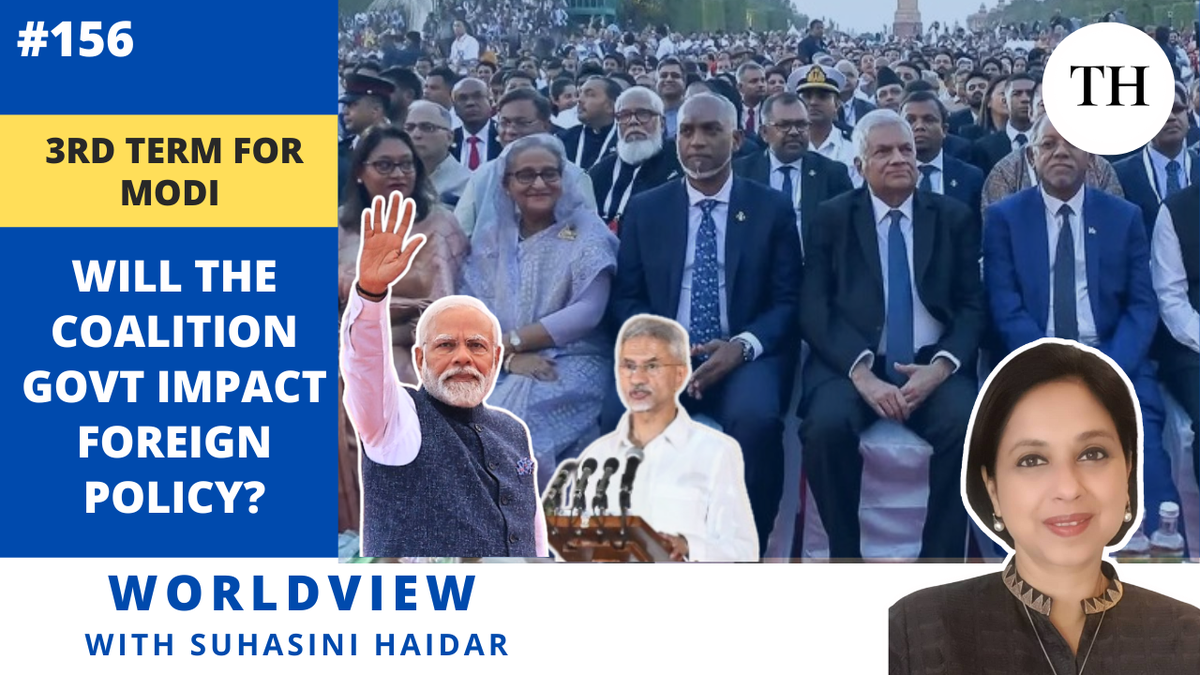With Prime Minister Modi picking the same team for diplomacy and national security, will there be any changes in Indian foreign policy during his third term under a coalition in charge? What is on his travel agenda and what are the foreign policy priorities for the new NDA government?
This week we would like to give you an introduction to what to expect in terms of foreign policy in the third term.
First, the NDA government’s core team dealing with diplomacy and national security remains the same:
1. EAM S Jaishankar – who met community leaders this week even before his portfolio was announced, took charge, outlining some priorities – and slogans of the new term
2. NSA Ajit Doval
3. Defense Minister Rajnath Singh
4. There are two new ministers of state
KirtiVardhan Singh, who went to Kuwait for the fire tragedy
Pabitra Margherita
For those following these developments closely, please note the following appointments: Minister of Foreign Affairs – As FS Kwatra’s extension expires in October – who will be the new FS, and will Mr Kwatra be appointed to an ambassadorial post? Deputy NSA – As Vikram Misri has been tipped to return to the MEA as FS ambassadors to the US, UN and France
Let’s take a look at what the new government’s foreign policy priorities will be:
1. Neighborhood is important, keep the comfort zone close:
-Invitation to all neighboring countries of SAARC minus Pakistan and Afghanistan and IOR with good ties
-Special effort for President Muizzu of the Maldives, given the tensions of recent months
-No recognition for Taliban or military junta regimes in Afghanistan and Myanmar
-Expect bilateral visits in the coming months – Sri Lanka, Bangladesh etc
-The problem area of China and Pakistan will be on the agenda, but different approaches will apply to both
With China,
-An early detente on the LAC situation will be crucial, a possible meeting with Xi Jinping next month on the sidelines of SCO
-After two years, China is back as India’s largest trading partner
-Yet President Xi Jinping did not greet Prime Minister Modi. It was Premier Li Qiang who sent a message
– Significantly, Beijing hosted Pakistani Prime Minister Sharif last week, even as the election results and swearing-in were taking place in India, and issued a joint statement containing parts on Jammu Kashmir that MEA objected to
With Pakistan
-No early relaxation is expected although Pakistan FM has hinted at movement in trade
-Attack in Jammu on swearing-in day is part of rising violence in JK and will complicate any engagement with Pakistan
3. Global balance of power
-PM Modi is expected to continue the tightrope walk over the geopolitical rivalry between the US and the West and Russia and the South
– The Prime Minister was in Italy for the G-7 as India was one of twelve countries invited for the outreach, where he met Western leaders including Biden, Sunak, Macron, Scholz, Meloni and Ukrainian President Zelenskyy, who was a special invitee
– Next month will be in Kazakhstan for the SCO summit – Putin, Xi, Sharif, Iran and Central Asian leaders expected plans to host the Quad Summit later this year, as well as travel to Russia for the BRICS summit
-India will maintain its position on the war between Russia and Ukraine
-New Delhi will continue to focus on issues in the Global South, especially in the areas of food, fuel and fertilizers
4. UN Leadership and Multilateral Forums
-Continue to push for UN reforms
-In September, India is expected to again call for a permanent seat on the UN Security Council – along with G-4 partners Brazil, Germany and Japan, they are also calling for a seat for Africa
-Memberships for other groups such as NSG will be pursued
5. Trade agreements
-FTAs with Britain, Australia, the EU, the GCC and Oman on the anvil
-FTA talks with Canada suspended
-Revision of FTAs with ASEAN etc. required, given the existing RCEP
-In the US, a Trump administration could also resume FTA talks
So what’s big on Modi’s travel agenda?
June-G7, Italy
July – SCO, Kazakhstan
September-UNGA, NY
October – ASEAN-India Summit, Laos
October – BRICS Summit, Russia
November – G20, Brazil
November/December – Possible Quad Summit in India
One party versus coalition: will foreign policy be affected?
-No major changes are expected due to coalition politics and pressure, which will be domestic in nature
-However, a stronger opposition in Parliament will put more scrutiny on all FP moves, especially on China
-In a third term, and with more domestic political commitments, Prime Minister Modi may travel less, placing more responsibility for travel on the EAM
-Attracting investment will be crucial for bilateral ties and can be spread more evenly as the coalition partners come from states.
-WV Take:
While no major changes are expected on the foreign policy front, given the team appointed for the new NDA government, there are certain indicators that one can gather. In a third term, leaders often turn inward, toward domestic reform and consolidation rather than new policies. and reactive rather than proactive to international developments. Of particular importance is to ensure that enduring relationships, whether with China, Pakistan, Canada, Turkey or the Maldives, are not neglected even as New Delhi strengthens its ties with traditional friends.
WV reading recommendations:
1. Nehru’s First Recruits: The Diplomats Who Built India’s Independent Foreign Policy by Kallol Bhattacherjee
2. India’s Trade Policy: The 1990s and Beyond by Arvind Panagariya, important reading from his earlier columns after India’s Moment: Changing Power Equations around the World by Mohan Kumar
3. Biden And Beyond: The United States Rethinks South Asia, edited by C Raja Mohan and Hernaikh Singh
4. Covert: The Psychology of War and Peace AS Dulat, Asif Durrani and Neil Aggarwal
5. Tyranny of the Minority: How to Reverse an Authoritarian Turn and Forge a Democracy for All, by Steven Levitsky and Daniel Ziblatt
Script and presentation: Suhasini Haidar
Production: Gayatri Menon and Shibu Narayan





















